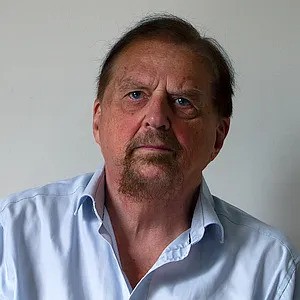If the Ukrainians feel the time has come to surrender to the Russians, they don’t need Donald Trump’s help. The ‘ungrateful’ wretches can do that for themselves.
The Russian ‘peace’ offer that Trump is trying to force on Ukraine this time is almost identical to the one that Russian leader Vladimir Putin pitched to him in Alaska last summer. Ukrainian President Volodymyr Zelensky will reject it again unless he thinks Ukraine’s defences are about to collapse – but why have they all been stuck in this loop for so long?
Putin’s goal is to reunite the parts of the former Soviet Union where at least a minority of the population speaks Russian, and Ukraine is the biggest of those parts. (Others are Belarus, Lithuania, Latvia, Estonia and maybe Kazakhstan.) Beyond that, he probably has no territorial ambitions – but just doing that would involve conquering around fifty million people.
The war, while murderous, is essentially frivolous from the Russian perspective. No major Russian strategic or economic interest is at stake, and Ukraine lost its ability to threaten Russia militarily when it gave up the nuclear weapons it inherited from the Soviet Union thirty years ago (in return for US security guarantees that proved to be useless).
Putin’s Ukraine invasion can best be seen as a heritage project to secure his historical position as one of Russia’s greats (Peter the Great, Catherine the Great, Putin the Great). But he would certainly not have attacked Ukraine in 2022 had he known it would be a four-year war, not a four-week one.
Too late – and he must now have a big win in Ukraine to justify a million Russian casualties. Otherwise, he will certainly lose power, and perhaps also his life. In this strictly limited sense, his current refusal to bargain or compromise is quite rational, although there has never been a plausible military threat to Russia.
Zelensky’s position is equally rational and equally inflexible. Although he is the most unlikely war leader ever – a Russian-speaking Jew from the world of entertainment – he quickly realised that his job is to hold on as much Ukrainian territory as possible for as long as possible.
That may not be forever, because Russia has four times the population of Ukraine and an economy ten times bigger (mainly because it’s the world’s third-biggest oil exporter). Fortunately for Zelensky and for Ukraine, we live in an era where defensive weapons and tactics have suddenly gained a huge advantage over the old blitzkrieg-style offensives.
God is still ultimately on the side of the bigger battalions, but recent technological changes (mainly drones) mean that Ukraine can lose very, very slowly. Ukrainian forces periodically retreat in baby steps along various parts of the 1,250-km front, but the Russian army at its current rate of advance would not even reach the eastern suburbs of Kyiv until 2030.
Losing slowly is therefore not necessarily a futile waste of Ukrainian lives. Every month brings another chance for some political, economic or technological change that alters the current equation and gives Ukraine a better bargaining position for an eventual ceasefire.
Zelensky’s job is to know if and when the morale of the Ukrainian army and the general public is starting to break. At that point he would have to make whatever deal he still can – but since the deal Trump’s people have just cooked up with Putin’s people would already reduce Ukraine to the status of a Russian colony, he has nothing to lose by saying ‘no’ now.
Unless, of course, Ukraine is at that point already. But it probably isn’t.
Donald Trump is the only one in a hurry. He doesn’t really care what happens to Ukraine either way, but he would probably collect enough frequent peacemaker points to win the Nobel Peace Prize if he can impose a ceasefire there before next year’s winner is chosen.
It would have to be a ceasefire that gives Russia its maximal demands, partly because of Trump’s weirdly intimate relationship with Putin but mainly because Putin believes he is winning anyway. Besides, a Ukrainian surrender would mean an end to sanctions against Moscow and immensely lucrative trade deals with Russia for Trump’s family and friends.
However, Trump’s leverage on Zelensky has diminished recently because he has managed to monetise US arms aid to Ukraine. Now, instead of going directly from Washington to Kyiv as aid, it is sold to Nato countries at full price, and they pass it on to Ukraine as interest-free loans or gifts.
The only direct harm Trump can now do to Ukraine is to cut off the supply of US intelligence, which he is already threatening to do again. But we’ve seen it all before, and he’ll probably once again be shamed into restarting the flow of intelligence before long.
The Ukrainians have not lost the war yet, and this is probably just one more trip around the loop.
Gwynne Dyer’s new book is ‘Intervention Earth: Life-Saving Ideas from the World’s Climate Engineers’. The previous book, ‘The Shortest History of War’, is also still available.






Click here to change your cookie preferences